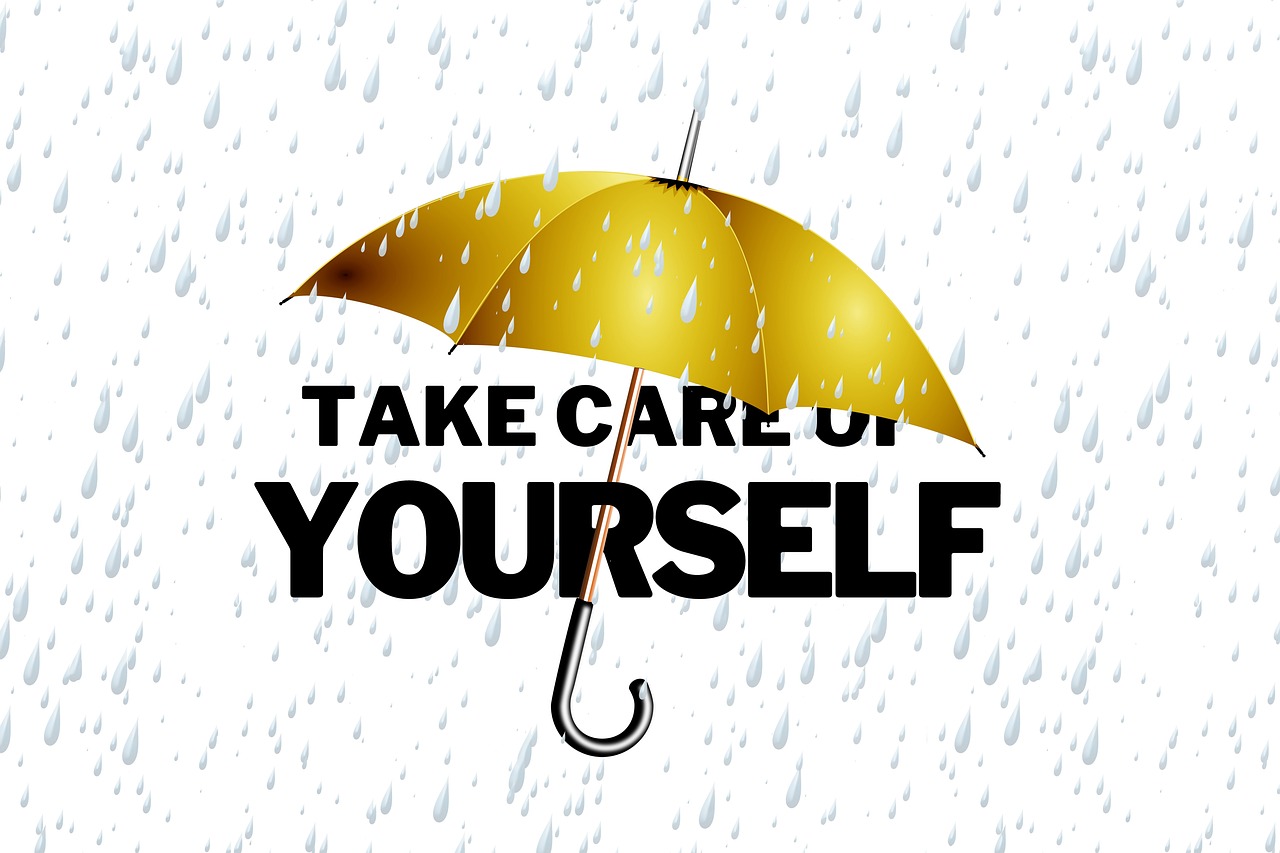How to Handle Stressful Situations with Grace
Dealing with stressful situations can often feel like navigating a minefield, where one wrong step can lead to an explosion of emotions. However, with the right tools and techniques, it is possible to handle these challenges with grace and composure. By recognizing triggers that set off stress reactions, you can better prepare yourself to face difficult situations without losing your cool.
Practicing mindfulness is another powerful way to manage stress effectively. Engaging in activities such as meditation and deep breathing can help calm your mind and bring a sense of peace amidst chaos. Deep breathing techniques, like diaphragmatic breathing, can instantly soothe your nerves and alleviate the physical symptoms of stress.
Seeking support from trusted individuals is crucial during times of high stress. Whether it's confiding in a close friend, family member, or therapist, sharing your feelings and concerns can provide emotional relief and offer valuable perspectives on how to navigate challenging circumstances.
Setting boundaries is essential for protecting your mental well-being in stressful situations. Learning to say no and prioritizing tasks through effective time management can prevent overwhelm and ensure a balanced approach to both work and personal life. Engaging in self-care practices, such as regular exercise, healthy eating, and sufficient rest, is also vital for managing stress and maintaining overall well-being.

Recognizing Triggers
Recognizing triggers is a crucial step in effectively managing stress and maintaining composure in challenging situations. By identifying the specific situations, events, or thoughts that trigger stress reactions, individuals can develop proactive coping strategies to address these triggers before they escalate into overwhelming emotions.
One effective way to recognize triggers is through self-reflection and introspection. Take note of situations or circumstances that consistently lead to feelings of stress or anxiety. By keeping a journal or mental note of these triggers, individuals can start to see patterns and common themes that contribute to their stress levels.
Additionally, paying attention to physical cues can also help in identifying triggers. Notice how your body reacts to different situations - increased heart rate, muscle tension, or changes in breathing patterns can indicate stress triggers. Understanding these physical responses can provide valuable insights into the underlying causes of stress.
Moreover, external factors such as certain environments, people, or tasks can act as triggers for stress. By being mindful of these external influences, individuals can proactively avoid or prepare for situations that are likely to induce stress reactions.
Recognizing triggers is not about avoiding all challenging situations but rather about being aware of potential stressors and developing healthy coping mechanisms to navigate through them with grace and composure.

Practicing Mindfulness
When it comes to managing stress effectively and handling challenging situations with grace, practicing mindfulness plays a crucial role. Mindfulness involves being fully present in the moment, acknowledging your thoughts and feelings without judgment. It allows you to cultivate a sense of awareness and control over your reactions, leading to a more composed and balanced response to stressors.
One of the key practices in mindfulness is meditation, which can help calm the mind, reduce anxiety, and enhance overall well-being. By setting aside time each day to meditate, you can create a space for relaxation and introspection, allowing yourself to let go of stress and focus on the present moment. Deep breathing exercises are often incorporated into mindfulness meditation, promoting a sense of calmness and reducing the physiological effects of stress on the body.
Additionally, engaging in activities that promote mindfulness, such as yoga or tai chi, can help center your mind and body, fostering a sense of peace and tranquility. These practices encourage you to tune into your physical sensations and breath, fostering a deep connection between mind and body.
Furthermore, mindfulness involves being aware of your surroundings and the present moment, rather than dwelling on past events or worrying about the future. By practicing mindfulness, you can train your mind to focus on the here and now, allowing you to let go of stressors that are beyond your control and concentrate on what you can influence.

Deep Breathing Techniques
Deep Breathing Techniques are powerful tools for managing stress and promoting relaxation in challenging situations. One effective technique is diaphragmatic breathing, also known as belly breathing. This method involves taking deep breaths, expanding the diaphragm, and filling the lungs with air, which can instantly calm the nervous system and reduce stress levels. By focusing on the breath and practicing this technique regularly, individuals can enhance their ability to stay calm and composed even in high-pressure situations.

Body Scan Meditation
When it comes to managing stress and promoting relaxation, is a powerful technique that can help you tune into your body and release tension. This practice involves focusing your attention on different parts of your body, starting from your toes and moving up to your head. By systematically scanning each body part, you can identify areas of tension and consciously release any tightness or discomfort you may be holding.
Imagine it as if you are a detective investigating your body for stress clues. As you bring your awareness to each area, you may notice sensations of warmth, tightness, or even numbness. The key is to observe these sensations without judgment or the need to change them. By simply acknowledging and accepting what you feel, you can gradually let go of physical and emotional tension, promoting a deep sense of relaxation.
During a Body Scan Meditation, it's common to encounter distracting thoughts or feelings. Instead of getting frustrated, treat these distractions as passing clouds in the sky of your mind. Acknowledge them, gently let them go, and refocus your attention back to the body part you are scanning. This practice of redirecting your focus can help cultivate mindfulness and presence, allowing you to stay grounded in the present moment.
One effective way to enhance your Body Scan Meditation experience is by incorporating deep breathing. As you scan each body part, synchronize your breath with your movements. Inhale deeply as you explore an area and exhale as you release any tension you find. This synchronized breathing can deepen your relaxation response and create a harmonious connection between your mind and body.
By regularly practicing Body Scan Meditation, you can develop a greater awareness of your body's signals and learn to release stress more effectively. This technique not only promotes physical relaxation but also cultivates emotional resilience, helping you navigate stressful situations with grace and composure.

Seeking Support
Tips and techniques for managing stress effectively to maintain composure and handle challenging situations with poise and grace.
Identifying stress triggers is essential for developing coping strategies and maintaining emotional balance in stressful situations.
Engaging in mindfulness practices such as meditation and deep breathing can help reduce stress and promote a sense of calmness.
Breathing exercises like diaphragmatic breathing can instantly calm the nervous system and alleviate stress responses.
Conducting a body scan meditation helps in releasing tension and promoting relaxation by focusing on different parts of the body.
Talking to a trusted friend, family member, or therapist can provide emotional support and valuable perspective during stressful times.
Establishing boundaries and learning to say no can prevent overwhelm and protect your mental well-being in challenging situations.
Effective time management skills can reduce stress by prioritizing tasks and ensuring a balanced approach to work and personal life.
Engaging in self-care activities like exercise, proper nutrition, and adequate sleep is crucial for managing stress and maintaining overall well-being.

Setting Boundaries
Setting boundaries is a crucial aspect of managing stressful situations with grace. By establishing clear boundaries, you are effectively defining what is acceptable and what is not in your interactions and engagements. This practice not only helps in safeguarding your mental and emotional well-being but also aids in maintaining a sense of control and balance in challenging circumstances.
When setting boundaries, it is important to communicate your limits effectively to others. By clearly articulating your needs and expectations, you are empowering yourself to say no when necessary and prioritize your own well-being. This proactive approach can prevent feelings of being overwhelmed or taken advantage of, allowing you to navigate stressful situations with confidence and composure.
Moreover, setting boundaries also involves managing your time effectively. By allocating time for self-care activities, work responsibilities, and personal pursuits, you are creating a structured framework that promotes balance and reduces the likelihood of burnout. This organized approach enables you to focus on tasks efficiently and avoid unnecessary stressors that may arise from poor time management.
Additionally, practicing self-compassion is essential when setting boundaries. Acknowledge that it is okay to prioritize your needs and well-being, even if it means disappointing others at times. By valuing your mental health and emotional stability, you are fostering a positive relationship with yourself and reinforcing the importance of self-care in managing stress effectively.

Time Management
Time management is like juggling multiple balls in the air; it requires skill, focus, and precision to keep everything in motion without dropping a single one. Effective time management is the key to reducing stress levels and maintaining a sense of control in the midst of chaos. By prioritizing tasks based on their importance and deadlines, individuals can ensure that they are investing their time and energy where it matters most.
One valuable technique in time management is the Pomodoro Technique, which involves breaking work into intervals separated by short breaks. This method not only enhances productivity but also prevents burnout by allowing for regular rest periods. Additionally, creating a daily or weekly schedule can provide a visual representation of tasks and deadlines, helping individuals stay organized and focused on their goals.
Another aspect of effective time management is the ability to delegate tasks when necessary. Delegating responsibilities to others not only lightens the workload but also allows individuals to focus on high-priority tasks that require their expertise. Learning to trust others with certain responsibilities is a crucial skill in time management, as it frees up valuable time and mental space for more critical tasks.
Moreover, incorporating time management tools and technology can streamline processes and enhance efficiency. Utilizing digital calendars, task management apps, and project management software can help individuals stay on track, meet deadlines, and collaborate effectively with team members. These tools serve as virtual assistants, reminding individuals of upcoming tasks and deadlines, reducing the risk of forgetting important commitments.
Ultimately, mastering time management is a continuous process that requires self-discipline, adaptability, and a willingness to reassess priorities regularly. By honing time management skills and implementing effective strategies, individuals can navigate through their daily responsibilities with ease, ensuring that they make the most of each moment and achieve their goals with grace and efficiency.

Self-Care Practices
Self-care practices are essential for maintaining overall well-being and managing stress effectively. Engaging in regular exercise not only benefits physical health but also promotes mental well-being by releasing endorphins, the body's natural stress relievers. Additionally, proper nutrition plays a crucial role in supporting brain function and energy levels, helping you better cope with stressful situations.
Ensuring an adequate amount of sleep is equally important as it allows the body and mind to rest and recharge, enhancing resilience and emotional stability. Creating a bedtime routine and prioritizing quality sleep can significantly impact your ability to handle stress with grace. Moreover, staying hydrated throughout the day is essential for optimal body function and cognitive performance, contributing to a more balanced response to challenging circumstances.
Frequently Asked Questions
- What are some common signs of stress?
Common signs of stress include irritability, fatigue, headaches, muscle tension, and difficulty concentrating. It's important to recognize these signs early to address stress effectively.
- How can mindfulness help in managing stress?
Mindfulness practices such as meditation and deep breathing can help calm the mind, reduce anxiety, and improve focus. By staying present in the moment, mindfulness can alleviate stress and promote emotional well-being.
- Why is seeking support important during stressful times?
Seeking support from friends, family, or a therapist can provide a different perspective, emotional comfort, and guidance in navigating challenging situations. It can help in processing emotions and finding solutions to alleviate stress.
- What role does setting boundaries play in stress management?
Setting boundaries is essential to protect your mental well-being and prevent burnout. Learning to say no when necessary and prioritizing self-care can help in managing stress levels and maintaining a healthy work-life balance.
- How can time management contribute to stress reduction?
Effective time management allows for better organization of tasks, prioritization of responsibilities, and allocation of time for relaxation and self-care. By managing time efficiently, individuals can reduce stress and improve productivity.



















